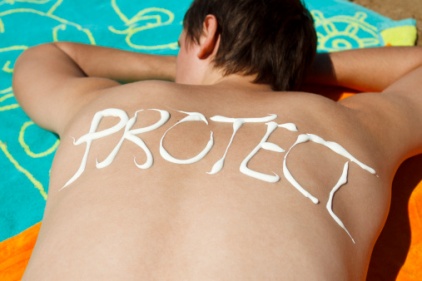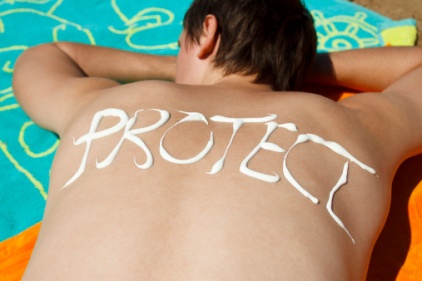 Summer’s seasonal woes can creep up on you when you least expect them. Here are a few tips courtesy of the Harvard HealthBEAT for staying cool, dealing with the sun’s awesome radiant energy, managing poison ivy, and warding off the insects that like summer as much as you do.
Summer’s seasonal woes can creep up on you when you least expect them. Here are a few tips courtesy of the Harvard HealthBEAT for staying cool, dealing with the sun’s awesome radiant energy, managing poison ivy, and warding off the insects that like summer as much as you do.
Sunshine: Protect your skin
It’s great to be outdoors in the summer. The sun is warm and bright — but too much sunshine will give you a painful burn. And even a “healthy” tan can cause trouble: over time, sun exposure will build up to increase your risk of melanomas and other skin cancers. Sun exposure will also produce premature aging and wrinkling of your skin.
Sunlight contains two forms of ultraviolet energy, UVA and UVB. Use a sunscreen that will protect you from both. Most products are effective against UVB, but many fail against UVA. Look for a “broad-spectrum” sunscreen; ingredients such as avobenzone and ecamsule are good for UVA, while oxybenzone and octocrylene add UVB protection. Zinc oxide and titanium dioxide protect against both.
Many sunscreen brands contain a mix of ingredients that provides protection against UVA and UVB.
Use a sunscreen with an SPF of 15 or higher. Apply it liberally 15 to 30 minutes before sun exposure; the most common mistake is not forgetting to use sunscreen, but using too little. Remember to reapply it every two hours and after you swim or dry yourself with a towel. Even sweating can wash away protection.
Above all, don’t let sunscreen give you a false sense of security. The only foolproof protection is to avoid sunlight as much as possible. Stay in the shade when you can, especially between 10 a.m. and 3 p.m., when the sun’s rays are strongest. Try to stay away from reflective surfaces. Wear a hat with a big brim, pants, and long sleeves.
If you slip up and get burned, your skin will be red, sore, and swollen. Cold compresses will be soothing. Aspirin and other nonsteroidal anti-inflammatory drugs (ibuprofen, naproxen, and others) or acetaminophen (Tylenol and other brands) will help relieve inflammation and pain. If your sunburn is severe, you’ll need extra fluids and rest. A steroid lotion or spray may also help.
Heat and humidity
Heat can turn an summer day into a medical crisis. But with simple precautions, you can stay safe this summer.
Your metabolism always generates heat, and when you exercise, your muscles crank out 20 times more. That’s okay if body heat can pass out into cool air. As the temperature rises, though, cooling becomes difficult, then impossible. The evaporation of sweat can also take away lots of body heat, but as the humidity rises, this too becomes difficult, then impossible. Heat that can’t be shed externally remains trapped in the body. That’s when problems develop. Some are mild (muscle cramps), others serious (heat exhaustion), and some can be lethal (heat stroke).
A few simple precautions can keep you from overheating during the dog days of summer.
- Avoid sunlight. Schedule your outdoor activity in the early morning or the evening to avoid direct sunlight and take advantage of the cooler temperatures.
- Wear light-colored, loose garments.
- Take it easy. Walk instead of jogging or use a cart instead of walking the golf course. Take breaks and quit early.
- Don’t exercise in extreme heat and humidity. If it’s humid and above 80° or 85°, take a day off or head for the pool — or an air-conditioned health club.
- Drink plenty of water. Drink 6 to 8 ounces of cool water before you get started, and pause frequently to drink. Even if you don’t feel thirsty, drink again on your way to the shower.
- Stay cool at home. Use an air conditioner or fans. If you can’t cool down your house, go somewhere cool when it’s really hot and humid.
- Listen to your body. Fatigue, weakness, confusion, lightheadedness, nausea, labored breathing, chest discomfort, or a rapid or erratic pulse can all be signs of trouble. If you feel ill, get into a cool place and drink plenty of water. If you don’t improve promptly, get help.


